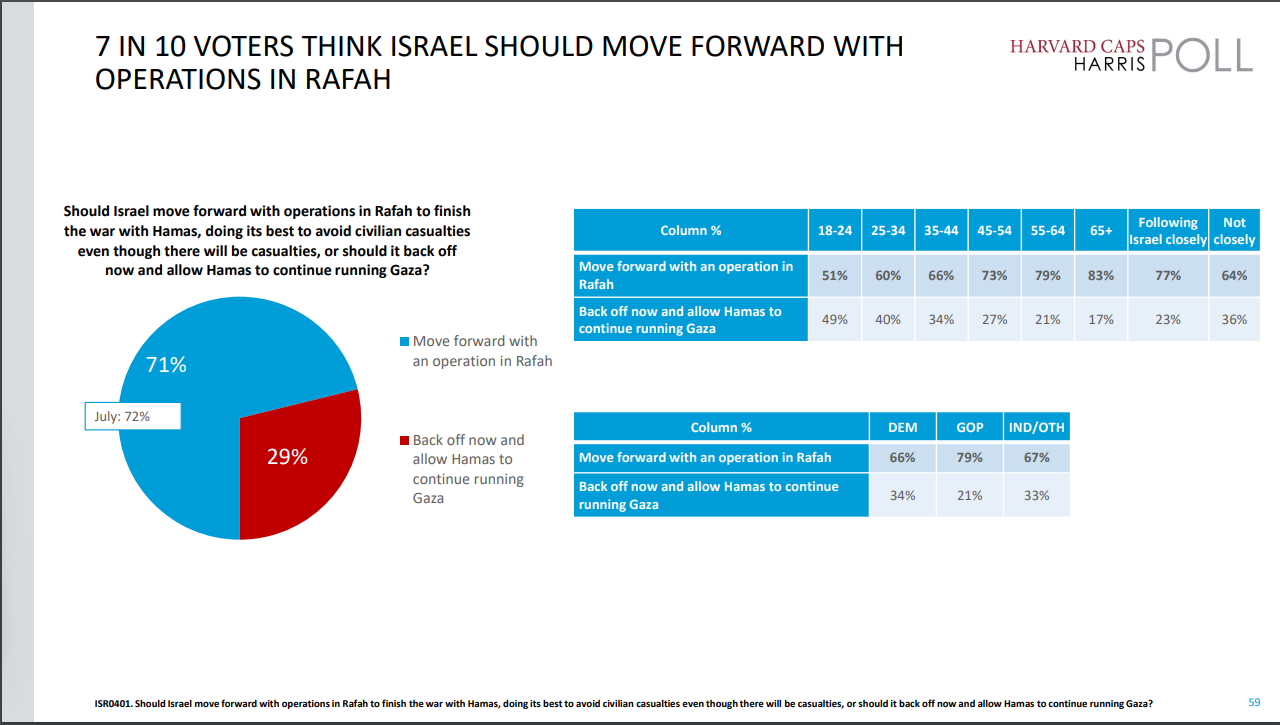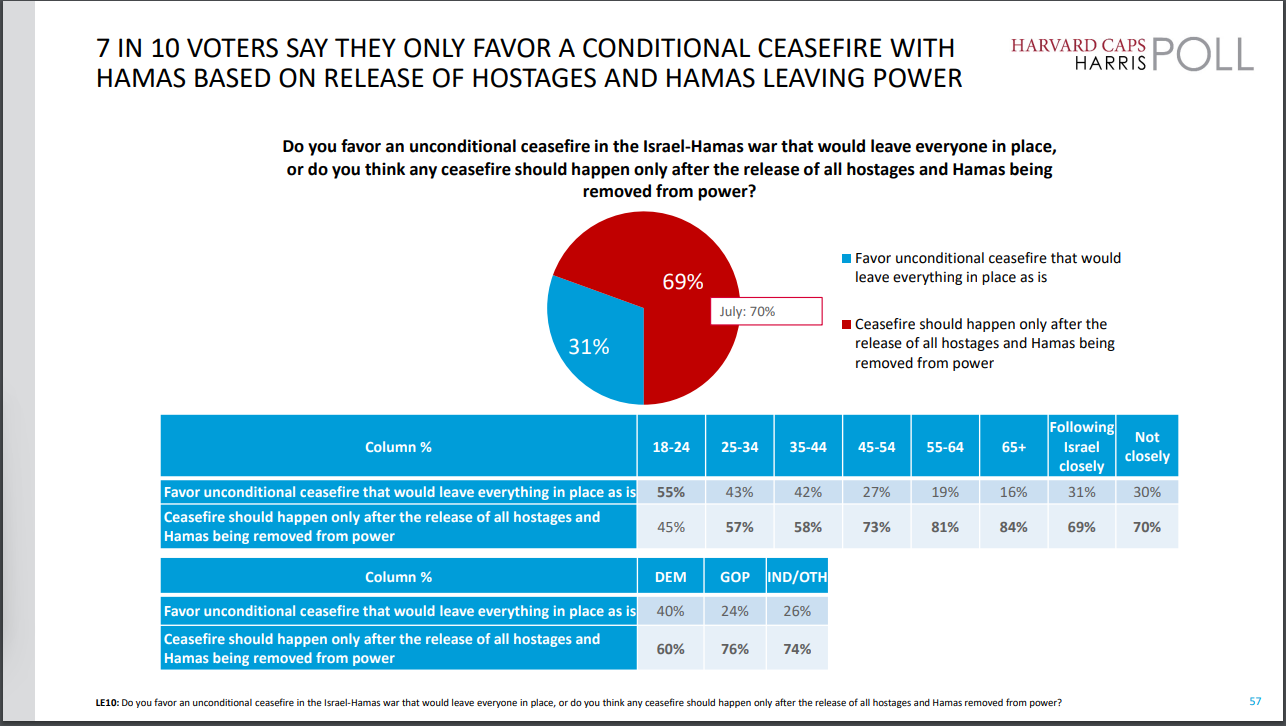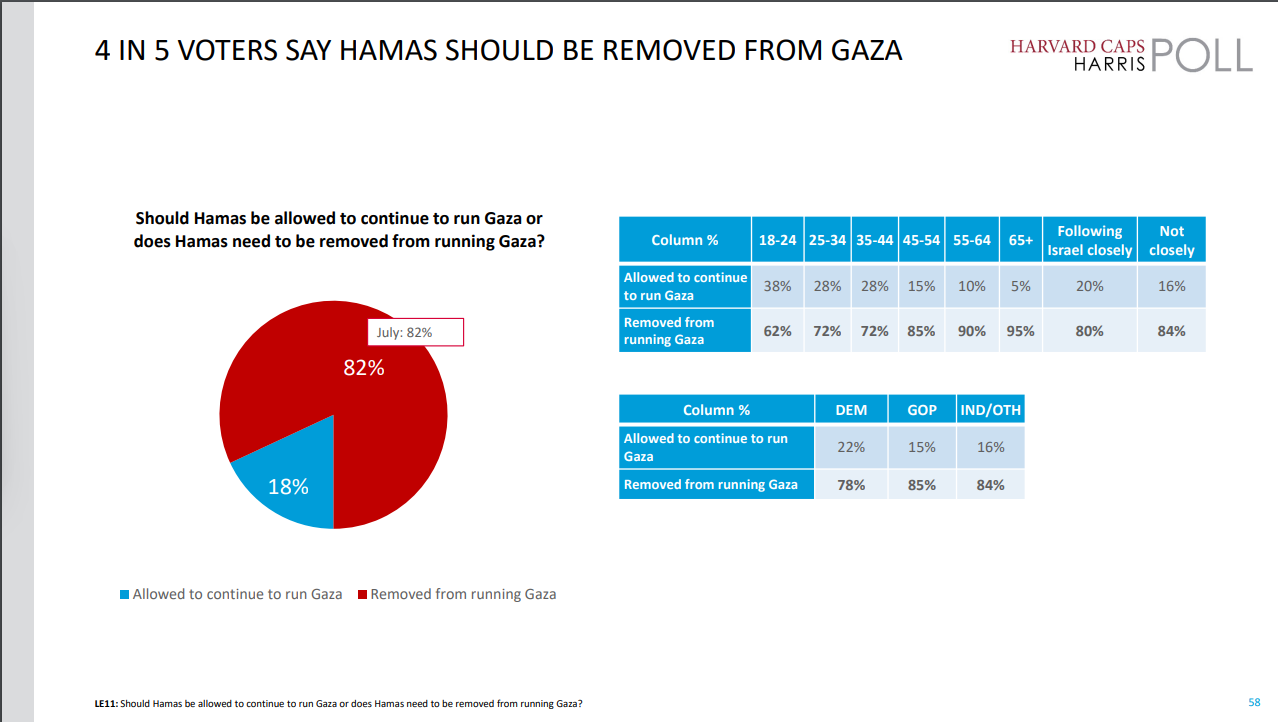Some little recognized truths about Israel’s war with Iran and its proxies
This week, coming between the Jewish High Holy Days of Rosh Hashanah and Yom Kippur, was October 7, the one-year anniversary of the savage and deadly terrorist attack by Hamas in Israel. Since the shock and near-universal outrage of that day as it unfolded over the following weeks and months, the narrative has evolved, and generally not in a good way.
On most TV shows and articles that addressed the anniversary this week, there was initially an acknowledgement that Hamas started this war with its vicious and savage attack. With the rape, burning, torture and killing of about 1,200 people in Israel and another 251 kidnapped, the real villain, if you wait past the obligatory opening, is Israeli Prime Minister Benjamin “Bibi” Netanyahu. He is perpetuating the war, they conclude, because that is what keeps him in office. Otherwise, he would be voted out of office, stand trial as early as December for criminal cases that have hung over him for years, and there would be accountability for the undeniable failure of intelligence and security on October 7.
This narrative is pervasive on CNN, for example, along with The New York Times, The Washington Post, and CBS on its Sunday Morning show. The formula for these stories is to quickly turn to an interview or cite a source of someone in Israel who blames Israel, especially Netanyahu, for the ongoing conflict and failure to arrive at a ceasefire.
For example, on October 7, Thomas Friedman’s New York Times column said: “the lack of a good story is hurting Israel in other ways. Israelis are being asked to send their sons and daughters to fight every day against Hamas and Hezbollah foes — yet cannot be sure if they are going to war to save the state of Israel or the political career of their prime minister,” adding that, “Because there is more than enough reason to believe that Bibi wants to keep this war going to have an excuse to postpone testifying in December at his corruption trial, to postpone an independent commission of inquiry as to how his government failed to prevent the worst attack on Jews since the Holocaust and to forestall new Israeli elections and maybe even to tilt our presidential election to Donald Trump.”
A Washington Post article previewing Bob Woodward’s new book due out next week said that last spring “Biden advisers were pushing Israel’s leaders to agree to a cease-fire deal as part of an effort to head off an invasion of Rafah, in the southern Gaza Strip. Their entreaties were futile; the Rafah offensive began in May. No one felt the limits of the administration’s ability to restrain Israel more acutely than Blinken. ‘It was obvious Blinken had no influence,’ Woodward writes.”
This is the refrain, that Israel refuses to go along with even a temporary ceasefire, continually changing the terms, and indiscriminately bombing and striking hospitals, schools and mosques, in Gaza and Lebanon, willing to kill children and other innocents just to keep the war going for Netanyahu’s political preservation.
The solution, we are told, is a ceasefire now, followed by movement toward the ultimate solution, the so-called two-state solution. Then we’ll have peace and stability and prosperity and all will be right.
Here are some important points to keep in mind:
- Israel has no interest in occupying Judea and Samaria (the “West Bank”) or Gaza, and wants to live in peace side by side with its Arab neighbors.
- Civilian casualties occur in war. Especially when one side uses children and regular people as human shields, hiding behind them in hospitals, schools, mosques and apartment buildings. Recall for instance the reports, credited to the Gaza Health Ministry, that Israeli airstrikes on a Gaza hospital on October 17, just 10 days into the war, killed over 500 people. But after the world wide headlines, it turned out that the death toll was in the dozens, probably less than 50, and it was caused by a misfired rocket from Islamic Jihad terrorists inside Gaza. Most of the casualty figures and much of the video we see today comes from the same Gaza Health Ministry and should not be thought of as reliable in any way.
- Palestinians have turned down a 2-state solution on at least a half a dozen occasions. This war has made any chance of a 2-state solution much less likely than before the war began. With whom would Israel negotiate the terms? What about the right of return? Control of Jerusalem? Controlling security?
- Israel goes to great lengths to avoid civilian casualties by attempting to contact the civilian human shields by flyer, text and phone, but civilian casualties are exactly what Hamas wants in Gaza as they see it intensifying the pressure on Israel to end the war. Israel is not committing genocide by any definition of the word. But it is what the Iranian backed fronts of this war are trying to do. Hamas’s covenant calls for the destruction of Israel: “Israel will exist and will continue to exist until Islam will obliterate it, just as it obliterated others before it.” (Preamble)
- Israel hasn’t occupied Gaza for nearly 20 years. In other words, with Egypt sharing Gaza’s southern border, Gaza has served as the experiment for what the Palestinians would do with complete control of their own independent state.
- Netanyahu is still popular in Israel and the most trusted to serve Israel’s biggest needs: to succeed as an innovative and economic powerhouse, to keep Iran and its proxies in check, to communicate with the Western media, to be available to reinstate the Abraham Accords, thus circumventing the Palestinians who turned down Trump’s $50 billion peace and prosperity deal. This poll from last month shows that in a head-to-head match-up with his two leading rivals, Benny Gantz and Yair Lapid, Netanyahu is best suited for the job of prime minister. He is ahead of each by 16 points.
- When Trump and others talk of going after Iran’s nuclear sites, it means their research and bomb making facilities, not recklessly bombing a nuclear power plant. Many believe Iran already has nuclear weapons. After all, do we really think they couldn’t have bought them from Pakistan or North Korea during all this time?
- Israel remains the essential eyes and ears for the West, keeping Iran in check and the Saudis if needed. Israel is prepared to fight, negotiate with, use cyber to interrupt and disable technical and operational plans in Iran and elsewhere, when and if needed.
- The often-heard line that “Israel has a right to defend itself” is absurd. Of course, Israel, like any country or any person, has the right to defend itself. Its leaders don’t need to be told that by the U.S., the EU, the UN or anyone. The question is, does Israel, as the only country in the world to face existential threats on a daily basis, have the right to defeat and destroy enemies who want to destroy them, “from the river to the sea?” And again the answer is, of course it does.
- Since shortly after last year’s attack by Hamas, it became apparent that there was a vast undercurrent of anti-Semitism on the Left, in many of our top universities, media organizations and in the Democratic Party that had largely been ignored or unnoticed before this. While one would think that such a heinous and vicious attack on Israel would result in anger and hostility toward the perpetrators and their supporters, it actually had the opposite effect, exposing a pent up well of hatred for Israel and Jewish people everywhere. Our Citizens Commission on National Security (CCNS), however, has long written about the Red-Green alliance, meaning that of leftists and jihadists. We covered that and many other related topics in our televised symposium, “The U.S. Israeli Alliance and its National Security Implications.”
- In spite of what you hear, the American people overwhelmingly support Israel in this war, including being against a ceasefire unless it means Hamas is driven from power and the hostages are released. Here are three items from a recent Harvard CAPS / Harris poll, conducted last month. This survey was conducted online within the United States from September 4-5, 2024 among 2,358 registered voters.

7 in 10 voters think Israel should move forward with operations in Rafah, the last holdout city in Gaza where Israel is pursuing the remaining Hamas terrorists

7 in 10 voters say they only favor a conditional ceasefire with Hamas based on release of hostages and Hamas leaving power

4 in 5 voters say Hamas should be removed from Gaza.
- On October 7, Netanyahu declared that Israel is in a “war for our existence—the ‘Revival War.’ This is what I would like to call the war officially,” according to the Jewish News Syndicate (JNS). The article also states that “The death toll among IDF troops stands at 729 on all fronts since Oct. 7, 2023, and at 347 since the start of the Gaza ground incursion on Oct. 27.
- In a powerful piece for Front Page Magazine about the multi-front war that Israel is engaged in, Daniel Greenfield argues that “Oct 7 had been Hezbollah’s plan before it was executed by Hamas” and that “the funding and plans had come out of Tehran,” but that Hezbollah hesitated. Greenfield wrote that “Iran had planned to break Israel on the final day of the Jewish High Holy Days. And to also break the United States with it by taking out a key American coalition partner in the region.”
- While Israel is regularly blamed for the failure to reach a tentative or permanent ceasefire, Netanyahu has agreed on several occasions to the U.S. plan for a ceasefire and release of hostages in exchange for Palestinian prisoners held in Israel. But each time Hamas refuses and yet Israel gets blamed, at least if you watch CNN, read The New York Times and read or watch the rest of the usual suspect “news” organizations. The State Department announced this week that a total of 46 Americans were killed in the original attack last year and that seven Americans are among the 101 still being held hostage, though it is not known how many of them are alive.
- Here are some recent examples of what Secretary of State Antony Blinken said regarding ceasefire proposals: “Since the President put the proposal forward, countries throughout the region and around the world – as well as international organizations – have all endorsed it. Israel has accepted it. And the only outlier in this moment – the only outlier in this moment – is Hamas,” Blinken said in June. “So my message to governments throughout the region, to people throughout the region is: If you want a ceasefire, press Hamas to say yes. If you want to alleviate the terrible suffering of Palestinians in Gaza, press Hamas to say yes,” the statement continued. Again in August, Blinken said that “Israel accepts the bridging proposal,” which was an effort by mediators in Doha, Qatar, to close the remaining gaps between the two sides. “It’s now incumbent upon Hamas to do the same,” he said.
- The Heritage Foundations’ Victoria Coates and Robert Greenway summarize how the Biden administration’s policies enabled Iran and led us to this perilous moment: “Under the Biden-Harris administration, the United States has freed close to $100 billion in Iranian assets and restarted negotiations on the dangerous Iran nuclear deal,” they wrote.
“The administration even abstained from the United Nations Security Council (UNSC) vote to declare an immediate ceasefire in the Israel-Hamas war—a war instigated by Iran. “This feckless approach has already had terrible outcomes. The world saw that last October, when Hamas terrorists, funded and equipped by an emboldened Iran, infiltrated Israel and massacred 1,200 Israelis. Then, on April 13, Iran launched 300-plus missiles and drones towards Israel—the largest attack in Iran’s history in the region, and the first direct attack by Iran on Israel. “Since last October, Iran-backed militias have attacked more than 170 U.S. bases and assets, and Hezbollah has launched more than 2,000 attacks on northern Israel. The Jewish state is now in more danger than it has been for half a century.”
For whatever reason, the Biden administration has kowtowed to Iran, allowing it to strike U.S. and other nations’ assets in the region without serious retaliation. And as Lee Smith wrote about in Tablet magazine, they have allowed an Iranian agent into the government: “They showed that [Robert] Malley had helped to infiltrate an Iranian agent of influence named Ariane Tabatabai into some of the most sensitive positions in the U.S. government—first at the State Department and now the Pentagon, where she has been serving as chief of staff for the assistant secretary of defense for special operations, Christopher Maier.”
Only recently did Israel decide to take matters into their own hands, and not be restrained by the political priorities of the Biden administration. This story is far from over.
The views expressed in CCNS member articles are not necessarily the views or positions of the entire CCNS. They are the views of the authors, who are members of the CCNS.
